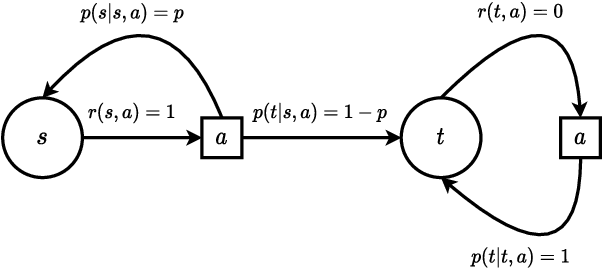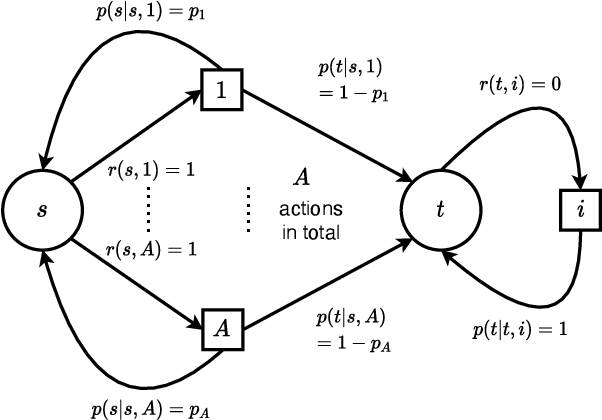Daochen Wang
Quantum Algorithms for Reinforcement Learning with a Generative Model
Dec 15, 2021

Abstract:Reinforcement learning studies how an agent should interact with an environment to maximize its cumulative reward. A standard way to study this question abstractly is to ask how many samples an agent needs from the environment to learn an optimal policy for a $\gamma$-discounted Markov decision process (MDP). For such an MDP, we design quantum algorithms that approximate an optimal policy ($\pi^*$), the optimal value function ($v^*$), and the optimal $Q$-function ($q^*$), assuming the algorithms can access samples from the environment in quantum superposition. This assumption is justified whenever there exists a simulator for the environment; for example, if the environment is a video game or some other program. Our quantum algorithms, inspired by value iteration, achieve quadratic speedups over the best-possible classical sample complexities in the approximation accuracy ($\epsilon$) and two main parameters of the MDP: the effective time horizon ($\frac{1}{1-\gamma}$) and the size of the action space ($A$). Moreover, we show that our quantum algorithm for computing $q^*$ is optimal by proving a matching quantum lower bound.
* 26 pages
Quantum exploration algorithms for multi-armed bandits
Jul 14, 2020
Abstract:Identifying the best arm of a multi-armed bandit is a central problem in bandit optimization. We study a quantum computational version of this problem with coherent oracle access to states encoding the reward probabilities of each arm as quantum amplitudes. Specifically, we show that we can find the best arm with fixed confidence using $\tilde{O}\bigl(\sqrt{\sum_{i=2}^n\Delta^{\smash{-2}}_i}\bigr)$ quantum queries, where $\Delta_{i}$ represents the difference between the mean reward of the best arm and the $i^\text{th}$-best arm. This algorithm, based on variable-time amplitude amplification and estimation, gives a quadratic speedup compared to the best possible classical result. We also prove a matching quantum lower bound (up to poly-logarithmic factors).
 Add to Chrome
Add to Chrome Add to Firefox
Add to Firefox Add to Edge
Add to Edge